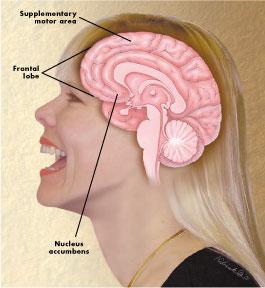Ordinary Swiss Army Knife
Dr. Seuss Army Knife
Many people recognize that laughter is good for us. Each year, more and more people are added to the ranks of silly walkers. So too does the number of people grow who observe for themselves how physiologically beneficial humor is for them.
Humor has been proven to alleviate stress, minimize pain, and increase productivity due to improved mood and increases in physical stamina.
Currently, there are two generic categories for humor: recreational and medical, with recreational referring to making others laugh and medical making yourself laugh. While most people fit into these categories, there is a third category, one that is more diverse and for that reason difficult to label. It includes such disparate uses as the magnification of pleasure in a host of activities ranging from going out to dinner to getting a good night's rest, the increased ability to "get into the moment" and see in others what we first see in ourselves, i.e., solidarity. Humor also catalyzes new ideas, insights, and creativity.
At its edges, which are slippery slopes, there is some conflation with both medicine and recreation. Yet, the preponderance of these uses falls into this broad and distinctive third category that I call enhancement. Using humor as an enhancer is the least appreciated or understood form of humor.
While I have yet to read it labeled as such - though I'm still pouring through journals and contemporary books on the subject - it might be that people who do subscribe to "laughter as good medicine" haven't yet considered this concept - or at least haven't written it down.
One category of humor utility that has been studied and written about is its usefulness as a medicine. Because there's not at this time a systematic clinical literature on the medicinal uses of humor, it would be prudent to begin a study whereby participants can share their experiences with using humor as a medicine, supplemented by what can be gleamed from the medical literature.
Anecdotal evidence is not as persuasive as that from double-blind placebo-controlled studies, the more scientifically sound modern medical approach to the safety and efficacy of new therapeutics. As the results of such studies become available we may be compelled to modify our estimate of the clinical usefulness of humor. At this time, however, it is difficult to imagine that future studies will subtract much from the clinical experience-driven perception (i.e., personal experience) that humor really is good medicine.
There are literature accounts of the benefits of humor dating back to ancient times (like before your grandparents were born), though the prime source for my own understanding of the uses of humor have been from direct use, i.e., writing humorously, interacting socially on a humorous level, a daily regime of purpose-driven laughter.
Unlike medicinal use, which will eventually be fitted with a label, an understanding of humor that falls into the category of enhancement might always remain to the category of anecdotal accounts.







No comments:
Post a Comment